Did you know? The seemingly simple act of brushing your teeth every day may be quietly guarding your heart health. Recently, the scientific community has made a major discovery that once again raises alarm bells about the strong link between oral hygiene and general health.
In previous studies, scientists have detected what appears to be an inextricable link between periodontitis and atrial fibrillation, as well as data showing that people who brush their teeth three or more times a day have a significantly lower risk of developing cardiovascular disease. But what's the secret behind the link has been troubling researchers for some time.
An elite team led by Prof. Mutsumi Miyauchi of Hiroshima University in Japan has published groundbreaking research results in Circulation, a leading journal in the cardiovascular field. Through a carefully designed mouse model and in-depth analysis of human tissues, they confirmed that a bacterium called Porphyromonas gingivalis is the “culprit” of periodontitis, and that its “evil” extends far beyond the oral cavity. The bacteria can sneak into the atrial tissue of the heart by virtue of the blood circulation, as if they were “hitchhiking”. Once “in”, it will “make waves” in the heart, accelerating the process of atrial fibrosis, so that the atria gradually become stiff, lose elasticity, and then significantly increase the risk of atrial fibrillation.
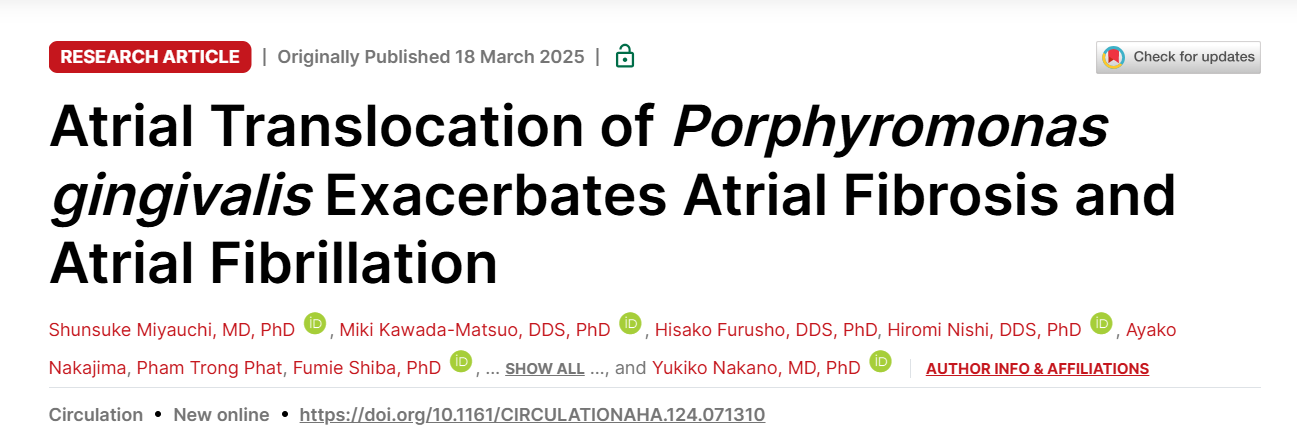
To further explore the reality of this phenomenon in humans, the research team launched a detailed investigation of 68 patients with atrial fibrillation. After surgical removal of the left atrial tissue from these patients, the surprising discovery was the presence of Porphyromonas gingivalis. And, after rigorous analysis, they found a key link: the number of the bacteria in the patients' atrial tissue was tightly linked to the surface area of inflamed tissue in the periodontal area, with a clear positive correlation; at the same time, the number of bacteria and the degree of atrial fibrosis grew in tandem with each other.
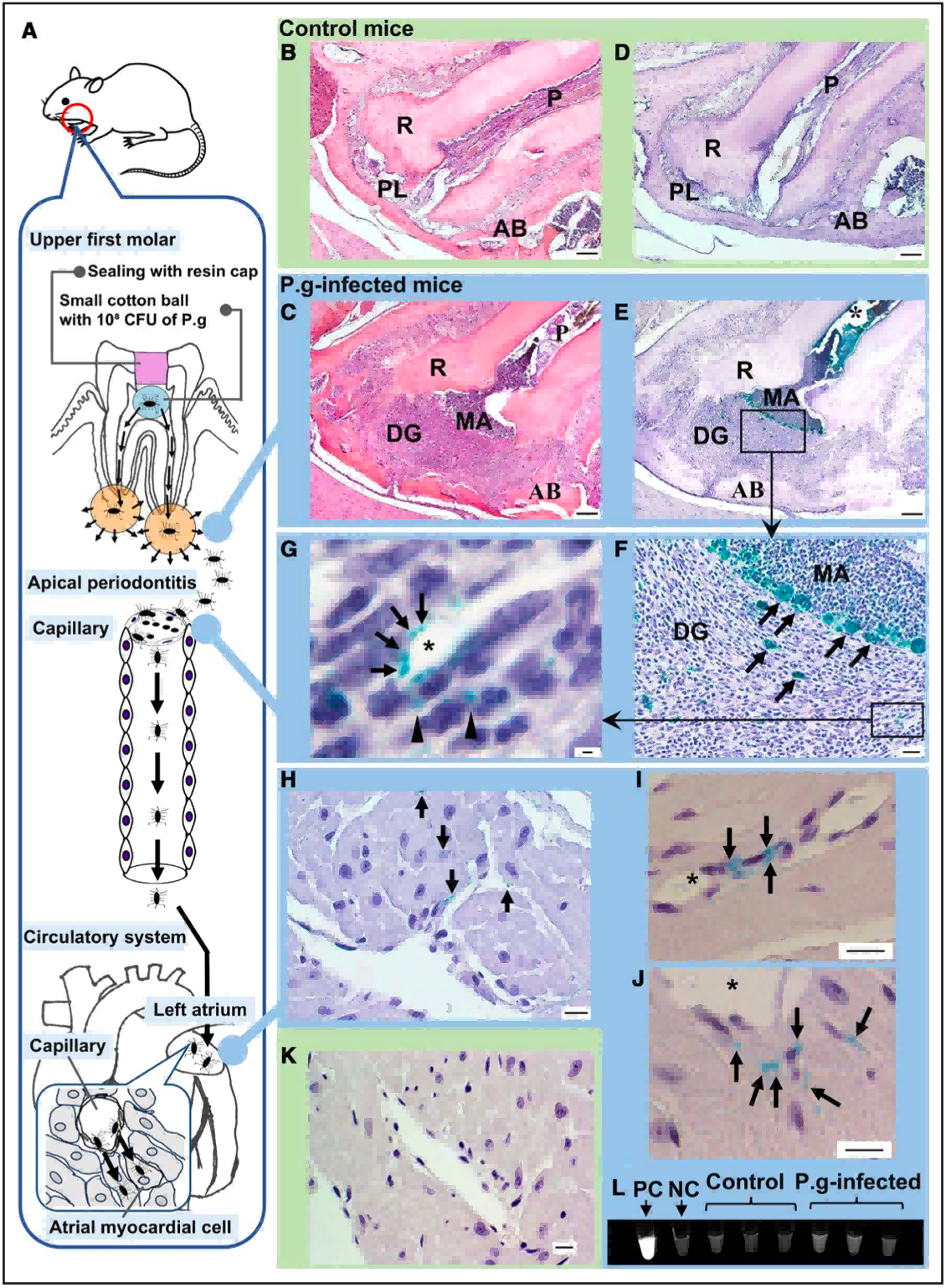
Translocation of Porphyromonas gingivalis from periodontitis lesions to the atrium
In fact, Porphyromonas gingivalis has a long history of being a bad bacteria, and many previous studies have pointed out that it can act like a “wandering germ” and roam around the human body, migrating to coronary arteries, the placenta, the liver, and even the brain and other vital organs, and wherever it goes, disease thrives. However, there has been a lack of conclusive evidence as to whether it is the key “bridge” between periodontitis and atrial fibrillation. This time, Mutsumi Miyauchi's team has finally solved the mystery through a lot of painstaking work.
They first established a mouse model of Porphyromonas gingivalis odontogenic infection, and used advanced imaging and detection tools to track the pathogen's “whereabouts” throughout the process. The results were clear: the bacteria started from the periodontitis lesion, entered the blood circulation smoothly, and finally arrived at the left atrium. Under the microscope, the bacteria were clearly seen in the cardiomyocytes and capillary endothelial cells of the atrium, whereas they were not found in the mice of the control group.
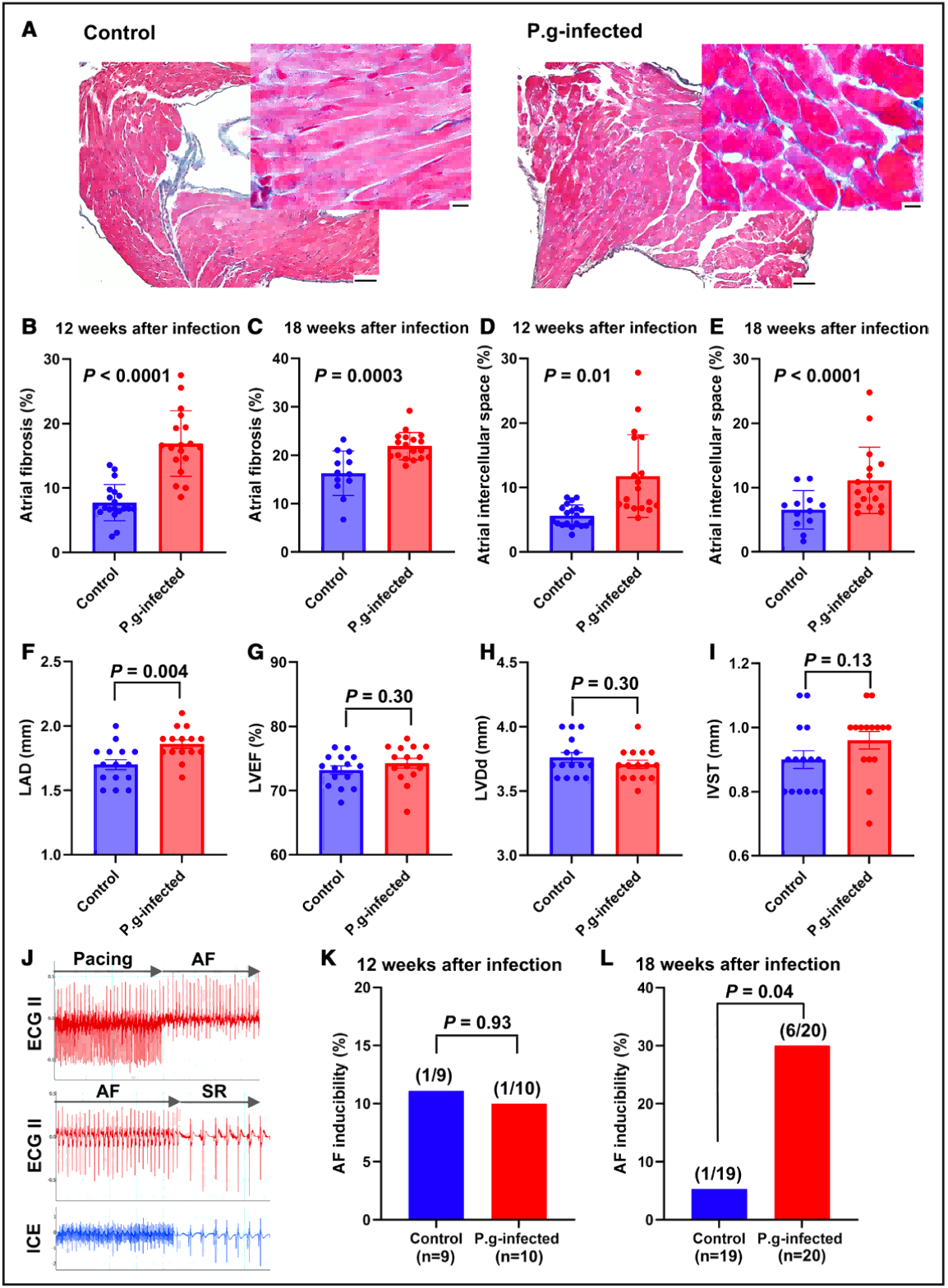
Cardiac effects of Porphyromonas gingivalis infection
As the experiments progressed, more surprising changes emerged from the comparative analysis of myocardial tissues in the infected and control groups. In the infected group, the original tight gap between the atrial myocytes began to expand, and a large number of collagen fibers continued to fill it; after just 12 weeks and 18 weeks, the left atrium became more and more fibrotic, the cellular gap seemed to be like a “chasm”, and the size of the left atrium also increased significantly like a blow-up balloon; after 18 weeks, the incidence of atrial fibrillation in the infected group far exceeded that of the control group, which was astonishingly high. When atrial fibrillation was induced at 18 weeks, the incidence of atrial fibrillation in the infected mice far exceeded that in the control group. In addition, the serum levels of inflammatory cytokines and various biomarkers in the infected mice “exploded”, and the mRNA expression levels of fibrosis-related molecules in the left atrial tissues also increased dramatically, as if a “storm of inflammation” was raging in the body.
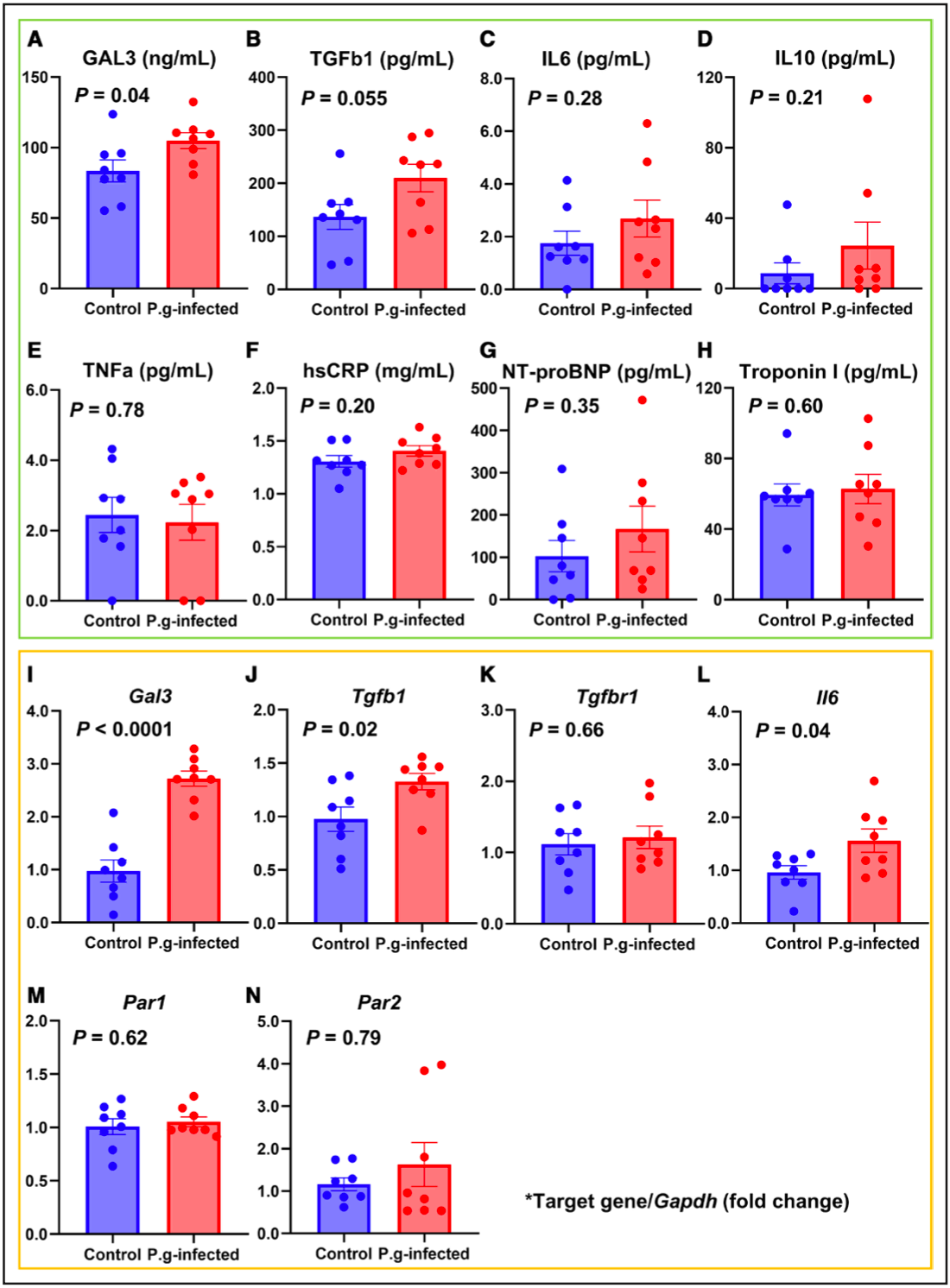
Serum levels of inflammatory cytokines (green box);mRNA levels of fibrosis-related molecules in left atrial tissue (yellow box)
Taking these findings together, the conclusion is clear: Porphyromonas gingivalis in periodontitis foci, once it enters the blood circulation and invades the left atrium, will act like a lit “fuse”, activating a series of inflammatory and fibrotic factors, and become the boss that promotes myocardial fibrosis and triggers atrial fibrillation!
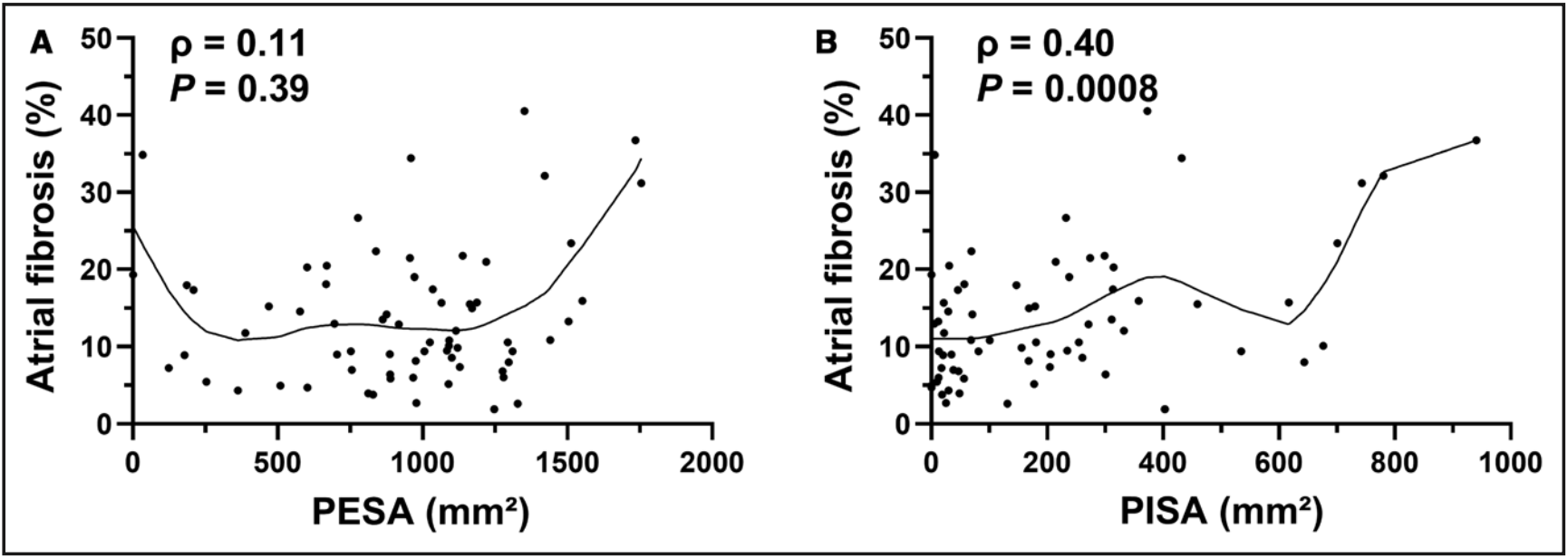
PISA positively correlates with the degree of atrial fibrosis in patients
Mutsumi Miyauchi's team has identified three other promising clinical benefits from this groundbreaking result. First, periodontal inflammatory tissue area (PISA) is expected to become a new “weathervane” for accurately assessing whether Porphyromonas gingivalis has migrated to the atria; second, a simple and effective strategy is to treat periodontitis in a timely manner to “nip” the bacteria in the bud; and third, Porphyromonas gingivalis is expected to “stop” its migration to the atria; and third, Porphyromonas gingivalis is expected to “stop” its migration to the atria. Second, a simple and effective strategy is to treat periodontitis in a timely manner to “nip the germs in the bud” and prevent them from migrating to the atria; and third, Porphyromonas gingivalis itself may become a cutting-edge “target” for the prevention of atrial fibrillation, which could open up new ways of thinking about medical treatment in the future.
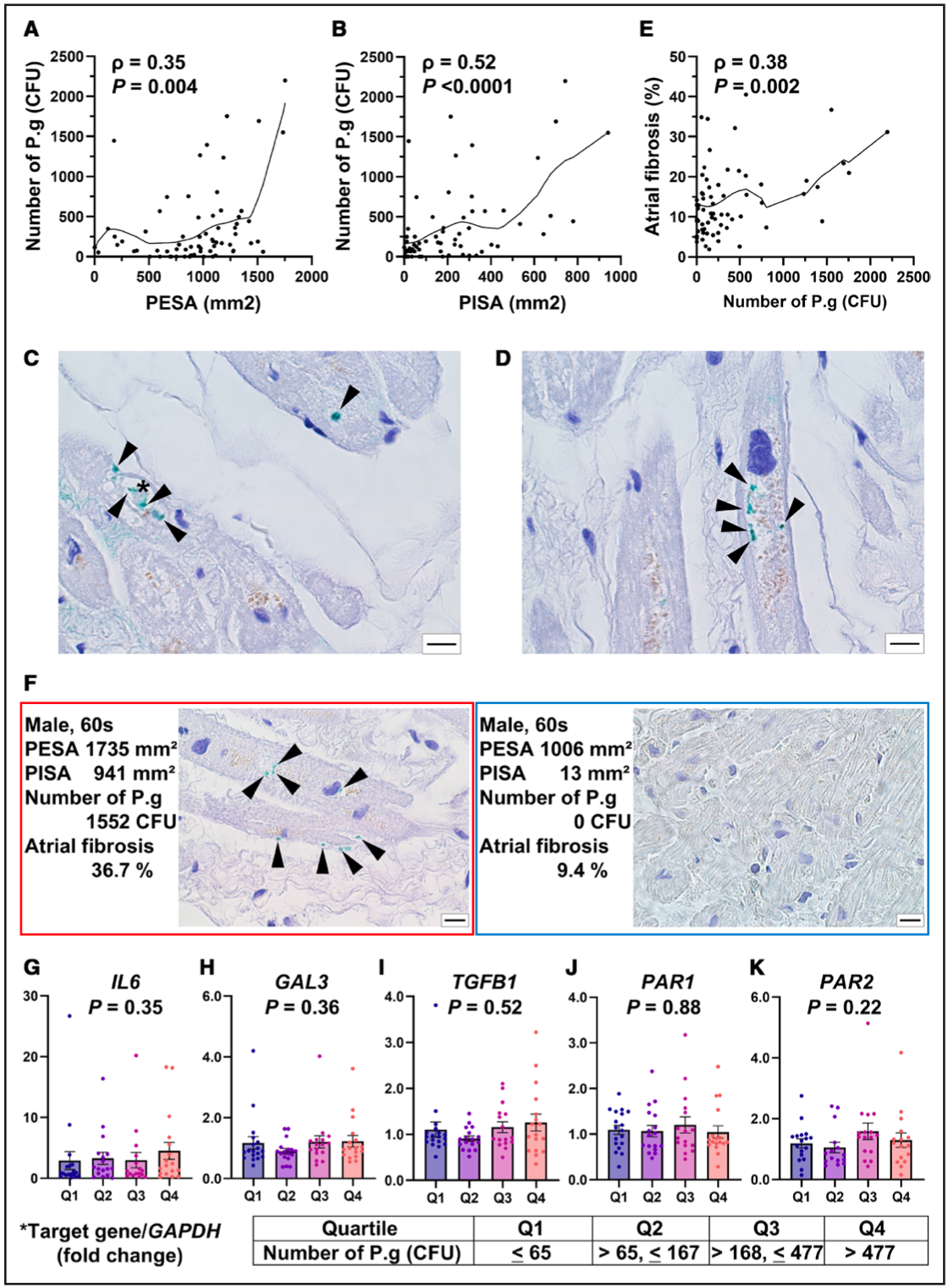
Human data
After learning these shocking truths, many people began to re-examine their brushing habits. Like some people decided, the daily morning and evening two brushing routine operation upgraded to three times a day, after all, from the source to prevent periodontitis occurs, is to guard their own health “ballast stone”. So don't underestimate the small matter of brushing your teeth, it's about the health of the whole body and mind, remember, brush your teeth every day to build a solid defense for your heart health!






Post comments